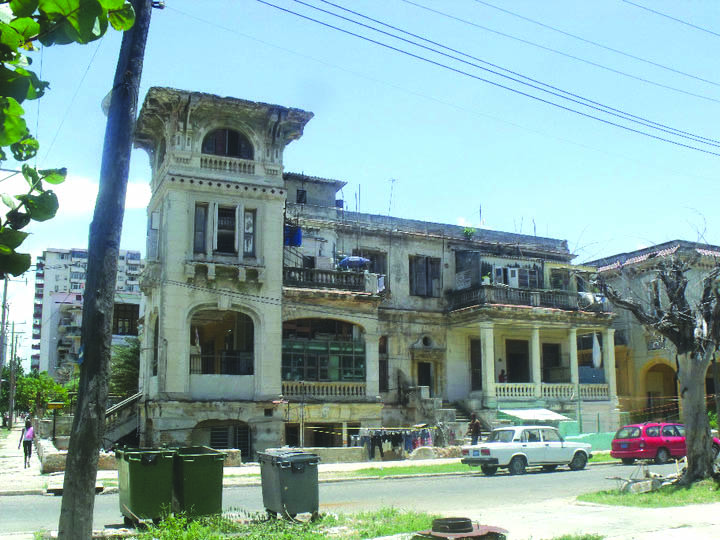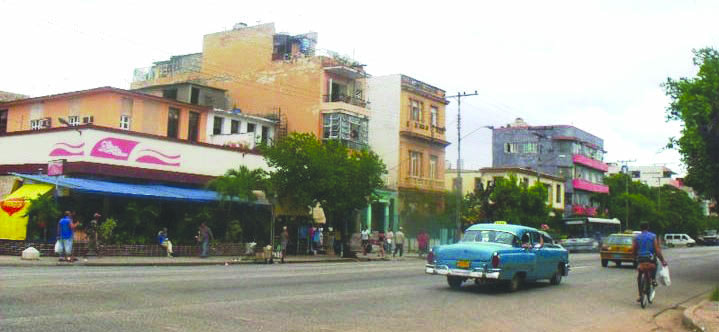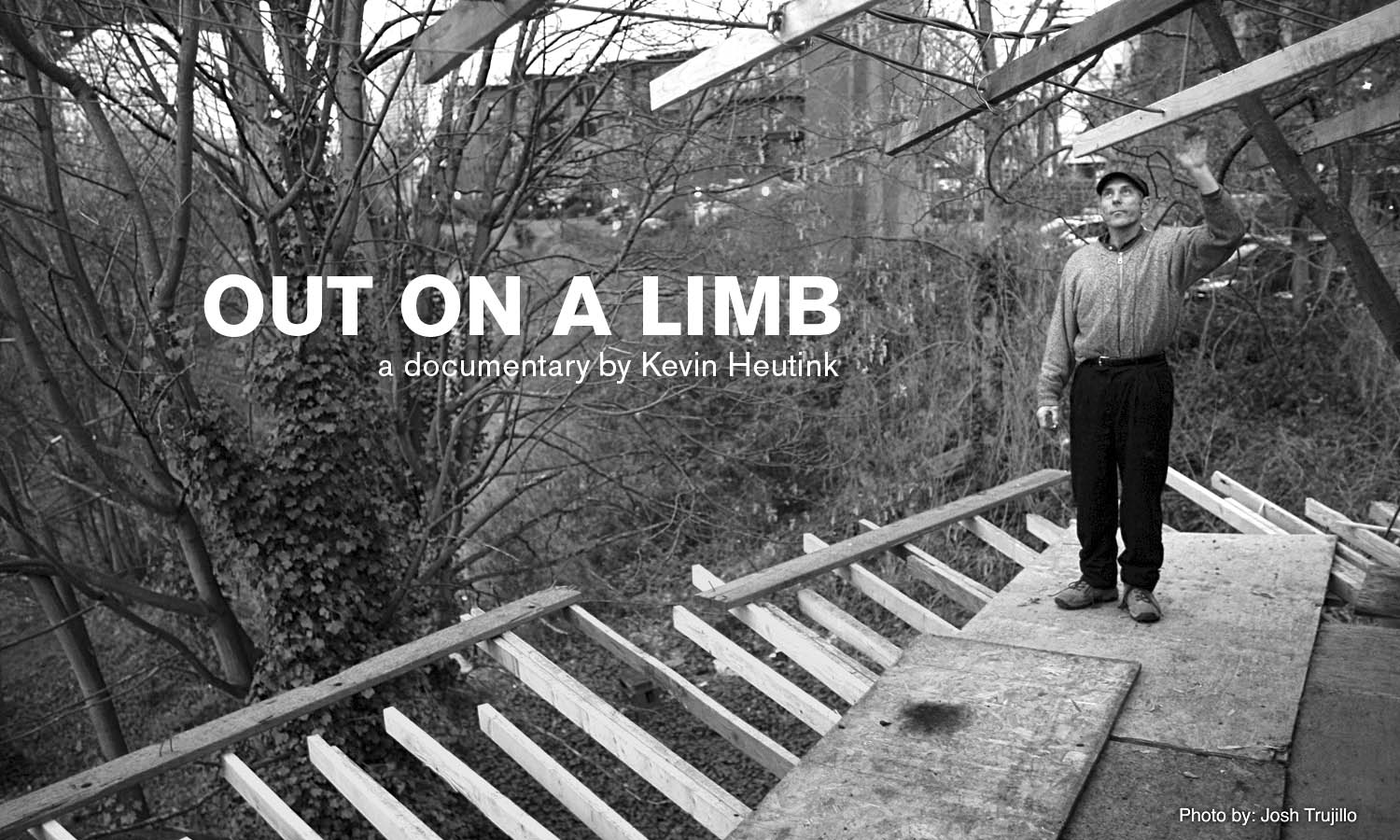An American passport visits Cuba
Cuba is a nation where janitors and dentists rub sweaty shoulders in the same packed bus home. In this country no one can complain about an educational divide between poor and rich, or die of a disease they cannot afford. Their stomachs are full of chicken and rice and are warm 365 days out of the year. The only thing lacking is a voice that facilitates social commentary.
Relic of the Cold War
On October 24th, our nation witnessed the dismantling of the last of the atomic bombs made during the cold war. Russia and China, previous leaders of everything communist, are now two of America’s best trade partners. With China funding our stimulus checks, it’s almost absurd to imagine Cuba would still be getting the silent treatment from the U.S. What I wanted to explore by going there myself was what’s so bad about Cuba that has caused the longest embargo in the history of the world. After traversing the necessary borders, I was able to purchase a plane ticket to Habana with no hassle.
Arriving in Jose Marti’ airport in Castro’s Cuba, the air was thick with humidity and could test even the locals’ comfort levels.
“Que, Calor!” Locals yelled when the heat got the best of them.
Frozen City
Going down El Presidentes St. in a taxi en route to the apartment I secured in Vedado, I noticed the architecture. There were mansions everywhere, all of Victorian nature as it was all the rage with the Americans who built them after the Spanish American War.
In Centro Habana, there lies a building that is a carbon copy of the capitol building in Washington D.C. which offers an irony that could make anyone smirk. And when night came, like a lamb following anything Hunter S. Thompson, I found myself a bit too inebriated one night before I was acquainted properly with the city and found myself lost for 16 miles. As I was getting to the raw bone of the soles of my shoes, I found myself completely sober, and affront the Lincoln Memorial, which in turn caused me to question my self-declared sober nature. Yes Cuba has its own Lincoln Memorial outside their University in Habana as well as a Martin Luther King Park.
The Locals
“People have a lot of time on their hands in Cuba. For instance, in the army. When you see a fruit in a tree. You climb it and feel it to see if it’s ripe. If it’s ripe, you climb back down and throw rocks at it.” Said Eberto Trujillo, a mechanic who was recalling his days in the military, which is required for all Cuban citizens.

Luis Hernandez, a security guard who works outside the ice cream parlor picks up his check and his free ice cream after work.
“Chicken, black beans and rice every night. My sister is an amazing cook and tries to use different spices to make it not taste like chicken.” Said Hernandez.
This is a common gripe from the Cuban people as all their food is subsidized, so they will never go hungry, but little is left for spontaneity in terms of variety.
I fancy myself a saint by taking Luis out to eat in Chinatown, thinking I was saving him from the monotony, but in reality Chinatown in Cuba is just one block, and is absent of all Chinese. The reality of it is that all the Chinese moved away after the revolution, and the one who stayed is of high commodity, and works only when convenient for him.
“He’s a rare one; everyone wants to eat real Chinese food, but I don’t think he’s that great,” Luis said whilst chuckling.
Alternatives you may ask? Sure there are plenty of restaurants in Cuba but all serve the same food as they all get the same allotment from the government. Good luck finding a sandwich that has more than ham and cheese. Maybe double ham and cheese if you’re lucky. Needless to say obesity is absent in Cuba.
The only place to get great food that somehow transcends the government’s allotment of chicken, rice and black beans is at the hotels who hire foreign chefs to attract tourists. The hotels are gorgeous structures that can be described as Victorian, postmodern, and Spanish. All very classy and the only thing differentiating them from the hotels in the states is the viva la revolution-esque merchandise in the gift shops.
The buffets here generally cost 10 cuc, the dollar equivalent to 10 dollars US or 12 Canadian. Not bad, but to someone on a Cuban salary of 15 cuc a month, virtually inaccessible. This is common in Cuban life, as regardless of what travel guide you buy, there is no such thing as a “Cuban price” and a “tourist price”. The reality of the situation is that there is one price and only one can readily afford it, while the other must hustle his way to scrounge up the funds.
This also creates a customer-worker dynamic that is truly unique to Cuba, as when you’re making cents a day, with food and housing already provided for, what’s the incentive to work hard? The answer is none. To your average entitled American who feels like customer needs are important, you will soon find yourself starving as you will be ignored by the woman behind the counter. Yell, flirt, flash your money, and make your voice known and only then will you get service as these people are merely hanging out here, and to serve you would indeed be doing you a favor. This isn’t rude, but a necessity of life in Cuba.
“Often times, waitresses will try to give you a handful of candy instead of change. They will insist,” said Kilmer, a Norwegian traveler whose Aryan features make him sort of a target in Havana.
The Cuban people are truly a diverse and beautiful people, with green eyes, tanned skin and high cheek bones that rival those of the beauties of the Brazilian people. This is due to the intermixing of brown Cubans, mulattos and fair skinned Cubans with closer ties to their Spanish ancestors. This all came about due to Castro’s passionate talks on what it is to be Cuban, as he no longer wanted Cubans to identify themselves within sub groups within the Cuban Society. Every brown Cuban has white relatives and vice versa.
This makes passing as a Cuban easy as long as you speak the language. For instance, saying Que’hola instead of the traditional ‘hola can make your taxi ride 50 cents instead of 3 dollars. Contradictory to a previous statement? Perhaps but Cuba is truly a land of contradictions, read on.

“The thing about Cuba’s housing situation is that everyone lives in a mansion fully paid for by the government. It’s just that about 30 people share it,” said Harold Moreno as he cynically laughs.
The houses in Cuba are truly a marvel of architectural feats and can be contrasted by the poor conditions of the people living within these Victorian mansions.
The Cuban real estate market is on the outside, nonexistent as technically all of the property of Cuba was divided up among families after the revolution and families were expected to stay together. Obviously, this isn’t the reality of the world, and under the table deals must be made to unofficially purchase a property.
Hustlin’
A woman once thought I was a jinitero, Cuba’s word for hustler, when I overheard her asking in English to the doorman “Where is the cigar shop?” I interrupted saying, “you guys want to buy cigars?” And she interrupted me saying no without looking at me. I was furious! But I did come off as a bit jinitero didn’t I? I thought I was doing her a favor by telling her where the best places were.
This infuriated me, as I myself had grown a distaste for the hustlers that would call to me in a sort of hissing fashion as I roamed the streets as I fancied myself a local having lived there for 3 months and budgeted my money so that I was spending like a local. The truth of the matter is that the hustlers in Cuba are harmless and really just make a living on helping people. They will attempt to show you the best beaches, cigar shops, and museums. This is usually cloaked as friendship, which leaves a bad taste in the foreigner’s mouth, but in reality the fee is usually in one-digit. Three bucks for a cab ride across the city to that Hemingway Museum you wanted to see? Do put your preconceived notions of extortion aside and pay the man.
The reality that you cannot choose what you will be paid to do in life in Cuba is a necessity, but you can choose what you do.
“I studied to be an investigative reporter for National Cuba. Three spots are presented for this job at one time and I made the score, but favoritism favored others with connection. I compensate this loss by working as my neighborhoods under the table private investigator,” said Raúl, a dark skinned man with a lazy eye.
Cuba is an ambiguous one and cannot I can’t say I understood it fully, but I can say that I am glad to have visited the last active relic of the cold war before its ever looming and eminent assimilation into the west.


